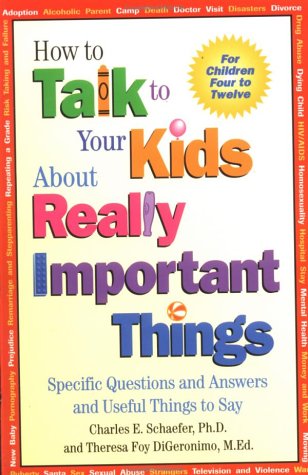Sharing bad news: Should parents talk to kids about their health?
 When your doctor tells you that you have a serious medical condition, it's stressful. When you have kids, it can be even more so as you and your partner debate about how much the kids should know, along with when and how they should be told. Most parents that I know want to be honest with their children, but don't want to worry them. Research published in the journal Family, Systems, & Health looked at the impact of sharing no information, partial information, or all of the information about a diagnosis of multiple sclerosis.
It goes without saying that every child and every family is different, and different diagnoses might generate varying reactions within families as well, so it's hard to generalize from the results of this study to the general population. Nonetheless, we've talked on the Family Anatomy podcast about the idea that kids have a good radar for detecting parental stress or conflict. It's possible that even when parents believe they've kept stressful information to themselves, their children might be sensitive enough to be affected by their parents' worry. So even if these findings don't apply to your particular situation, it might be worth thinking about, and talking to your partner about, whether and how to talk to kids about your health concerns.
When your doctor tells you that you have a serious medical condition, it's stressful. When you have kids, it can be even more so as you and your partner debate about how much the kids should know, along with when and how they should be told. Most parents that I know want to be honest with their children, but don't want to worry them. Research published in the journal Family, Systems, & Health looked at the impact of sharing no information, partial information, or all of the information about a diagnosis of multiple sclerosis.
It goes without saying that every child and every family is different, and different diagnoses might generate varying reactions within families as well, so it's hard to generalize from the results of this study to the general population. Nonetheless, we've talked on the Family Anatomy podcast about the idea that kids have a good radar for detecting parental stress or conflict. It's possible that even when parents believe they've kept stressful information to themselves, their children might be sensitive enough to be affected by their parents' worry. So even if these findings don't apply to your particular situation, it might be worth thinking about, and talking to your partner about, whether and how to talk to kids about your health concerns.
Dr. Elena Paliokosta and her colleagues chose multiple sclerosis because the desease was thought to represent a significant stressor for young people as a result of its degenerative nature and sometimes unpredictable course of recovery and relapse. They interviewed parents and their children (who ranged in age from 4 to 17 years); kids who were 11 or older also completed questionnaires about their mood and behaviour. The researchers also obtained health information from the patients' doctors. Parents were asked how much their children had been told about the illness, and families were classified as those who had shared no information, partial information, or "total disclosure." The last category indicated that age-appropriate information had been shared about the parent's illness.
Dr. Paliokosta and her fellow researchers were somewhat surprised to discover that children and adolescents had the most difficulty if they were given partial information about their parent's health status. Mothers in the "partial information" families reported more behavioural difficulties and social problems for their children; problems with mood and worry in particular were somewhat more elevated in this group. Those who were old enough to provide questionnaire data indicated a greater degree of peer-related problems as well. Despite these differences among the groups, the amount of information shared did not have an impact on overall family functioning. Overall, though, the researchers concluded that providing partial or developmentally inappropriate information about a diagnosis of MS might be more stressful than giving no information at all.
 Regardless of whether or not parents decide to share information about their health with their children, I think it's important for them to have a discussion about "when, how, and how much" information should be given. Planning ahead is rarely a mistake in these kinds of situations, and kids who become aware of their parents' symptoms might require some explanation. Nonetheless, it can be hard for parents to talk about such a difficult subject, and knowing what's developmentally appropriate might not be readily apparent. It might be worth discussing this issue with a physician or therapist who can provide some guidance in your specific circumstance.
Regardless of whether or not parents decide to share information about their health with their children, I think it's important for them to have a discussion about "when, how, and how much" information should be given. Planning ahead is rarely a mistake in these kinds of situations, and kids who become aware of their parents' symptoms might require some explanation. Nonetheless, it can be hard for parents to talk about such a difficult subject, and knowing what's developmentally appropriate might not be readily apparent. It might be worth discussing this issue with a physician or therapist who can provide some guidance in your specific circumstance.
Charles Schaefer and Theresa Foy DiGeronimo have a great book, "How to Talk to Kids About Really Important Things," that gives parents ideas about kids' questions and developmentally-appropriate answers on a number of difficult subjects, including death, divorce, poverty, and war. Their suggestions emphasize the importance of validating children's feelings, and it can be helpful to have a partial script or some guidelines when discussing such stressful topics with your children!
You can read Dr. Paliokosta's study here.
Vote for The Family Anatomy Podcast at Podcast Alley and for the blog at Blogger’s Choice!
Note: Posts on Family Anatomy are for education only. If you need to talk to someone about family or mental health issues, you can get a referral from your family doctor.
